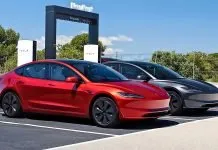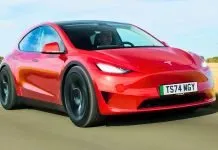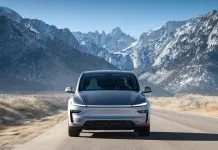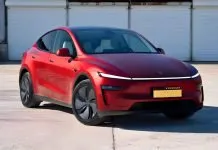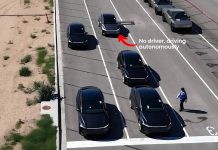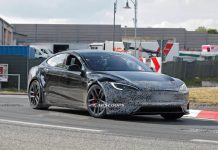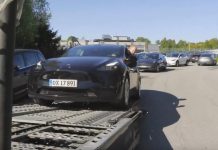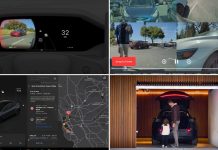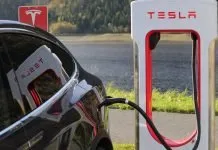In a monumental shift within the electric vehicle industry, General Motors has made a strategic decision to adopt Tesla’s North American Charging Standard (NACS).
This move solidifies NACS as the unified EV charging standard and follows closely on the heels of Ford’s similar decision just weeks prior. By embracing Tesla’s charging standard, GM is positioning itself at the forefront of the evolving EV landscape.
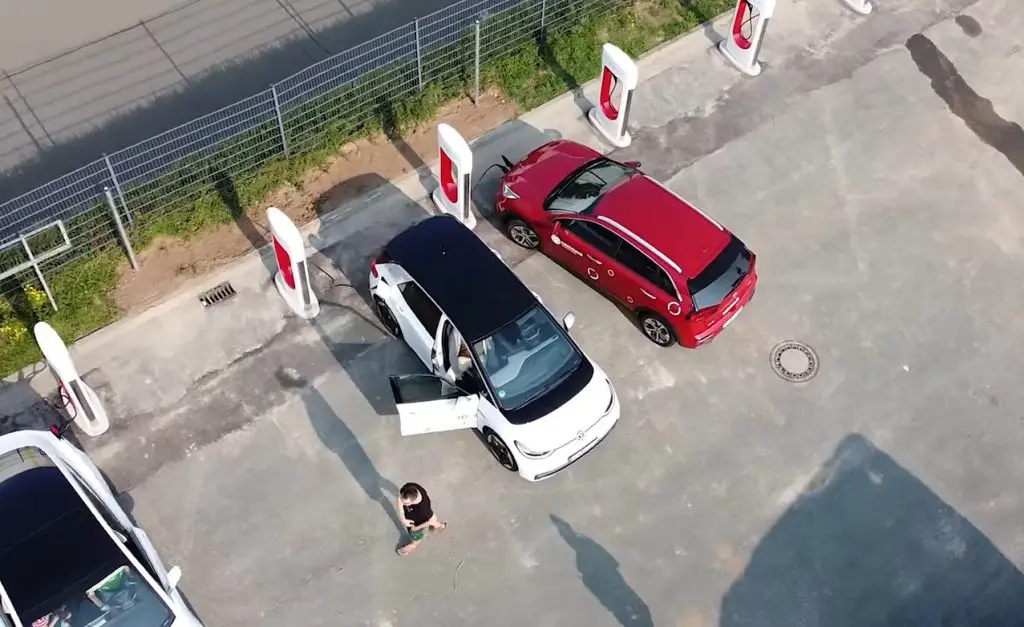
Table of Contents
GM’s Strategic Decision to Embrace Tesla’s NACS Charging Standard
GM’s announcement last Thursday confirmed its plans to integrate Tesla’s sleek NACS charging ports into its future EV models, commencing in 2025. This means that GM’s upcoming electric vehicles will be equipped with the NACS charging inlet, providing direct access to Tesla’s extensive Supercharger network without the need for adapters.
We're teaming up with @tesla to enhance your electric vehicle experience. More charging stations, less range anxiety, more sustainable journeys. It's about your convenience, not our competition. #EverybodyIn pic.twitter.com/D4joovLjPh
— General Motors (@GM) June 8, 2023
The decision signifies a significant departure from GM’s previous plan, which involved offering CCS to Tesla adapters for existing Ford EV owners in early 2024.
Enhancing Access to High-Speed Charging Infrastructure
Tesla’s extensive charging ecosystem of 12,000 Superchargers in Canada and the US will now be accessible to GM’s EV owners. This integration opens up broader access to high-speed charging infrastructure for electric vehicle owners across the continent.
Previously, Tesla had also planned to extend Supercharger access to existing Ford EV owners by early 2024 through a CCS to Tesla adapter.
GM’s Vision for a Seamless Charging Experience
GM aims to ensure a smooth and convenient charging experience for its customers. As part of their strategic collaboration with Tesla, GM will incorporate Supercharger network details, including location and availability data, into their EVs and mobile apps.
By doing so, GM intends to expedite mass EV adoption and create a comprehensive ecosystem of EVs across various categories and price points, while simultaneously expanding access to fast chargers.
The Future of CCS and the Impact of GM’s Decision
With two major North American automakers, Ford and GM, endorsing Tesla’s charging standard, the future of the Combined Charging System (CCS) in North America appears increasingly uncertain. The partnership between GM and Tesla has already sparked positive market reactions, with Tesla’s shares rising following the announcement.
This significant decision by General Motors sets the stage for the unification of EV charging standards, leading to a seamless charging experience for all EV owners. As GM and Ford transition to Tesla’s NACS, it is likely that other automakers will follow suit, further solidifying the adoption of this unified standard.
Future of NACS Charging Standard
In the future, with the adoption of Tesla’s NACS charging standard by major automakers like General Motors and Ford, several key developments can be expected in the realm of electric vehicle (EV) charging:
Standardization of Charging Networks
The adoption of a unified charging standard like NACS across multiple automakers can lead to increased standardization of EV charging networks. This harmonization will reduce the need for adapters or multiple charging memberships, simplifying the charging process for EV owners.
A more streamlined and standardized network will contribute to overall market growth and customer satisfaction.
Collaboration and Partnerships
The adoption of Tesla’s NACS by major automakers signals a shift towards collaboration and partnerships in the EV charging ecosystem. Automakers, charging network operators, and infrastructure providers are likely to work together to establish a comprehensive charging network that seamlessly supports the NACS.
This collaboration will foster interoperability, enabling EV owners to charge their vehicles at various charging stations regardless of the automaker or network provider.
Continued Innovation
As the EV market expands and competition intensifies, there will be ongoing innovation in charging technologies. Automakers and charging infrastructure providers will strive to improve charging efficiency, develop advanced battery technologies, and explore new methods such as wireless charging.
These innovations will address range anxiety concerns, improve charging infrastructure scalability, and further enhance the overall EV ownership experience.
Future of CCS1 Charging Standard in North America
Ultimately, the future of any charging standard depends on market demand and consumer preference. Factors such as charging speed, convenience, and interoperability will play a significant role in shaping the direction of EV charging standards.
If CCS1 infrastructure continues to grow and offers compelling advantages, it may retain a substantial market share and remain relevant.
Dear god yes, please!
— Magnus Malm (@malm_magnus) June 8, 2023
It is worth noting that the transition towards a unified charging standard, as demonstrated by the adoption of Tesla’s NACS, can lead to a more seamless charging experience for EV owners. However, it does not necessarily imply the immediate demise of CCS1.
The charging landscape is dynamic, and future developments will depend on a combination of market forces, industry collaborations, and technological advancements.
Conclusion
General Motors’ embrace of Tesla’s North American Charging Standard represents a significant leap towards the unification of EV charging standards in North America. By incorporating the NACS into their future EVs, GM is not only making strategic business decisions but also contributing to a broader vision – a future where electric vehicle charging is universal, seamless, and efficient for all.
With the integration of Tesla’s Supercharging network, GM’s customers will gain unprecedented access to a well-established charging infrastructure, further driving the adoption and growth of electric vehicles in North America.
Overall, the adoption of Tesla’s NACS charging standard by major automakers sets the stage for a future where EV charging is more seamless, standardized, and widely accessible.
With expanded infrastructure, faster charging speeds, and ongoing innovation, the future of EV charging looks promising, paving the way for increased EV adoption and a more sustainable transportation landscape.

